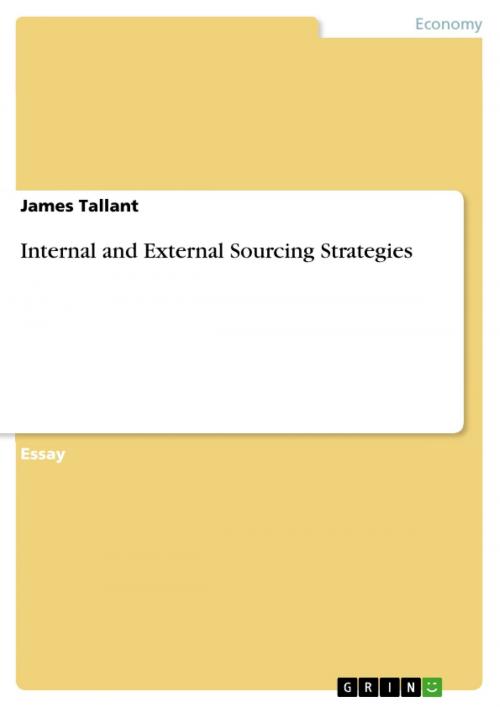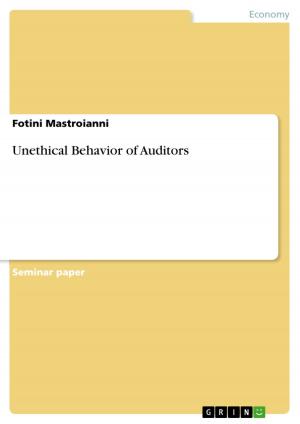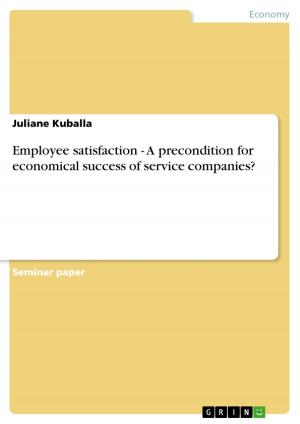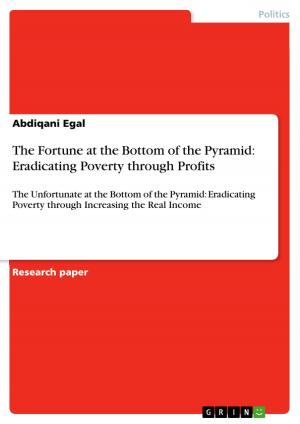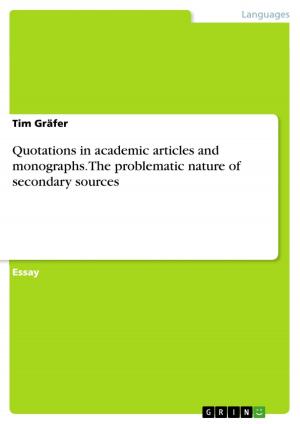Internal and External Sourcing Strategies
Business & Finance, Management & Leadership, Production & Operations Management| Author: | James Tallant | ISBN: | 9783640838004 |
| Publisher: | GRIN Publishing | Publication: | February 21, 2011 |
| Imprint: | GRIN Publishing | Language: | English |
| Author: | James Tallant |
| ISBN: | 9783640838004 |
| Publisher: | GRIN Publishing |
| Publication: | February 21, 2011 |
| Imprint: | GRIN Publishing |
| Language: | English |
Essay from the year 2010 in the subject Business economics - Supply, Production, Logistics, grade: 91.00, University of Phoenix, course: ISCOM 370 Strategic Supply Chain Management, language: English, abstract: Internal/External Sourcing Strategies Paper Organizations face challenges to improve their financial standing. Challenges such as product design and quality, cost of goods sold, and cycle time contribute to an organizations financial health. To assist organizations better control these factors, supply chain management techniques, when implemented improve costs, delivery cycle times, and quality. Supply chain management achieves these goals through the use of strategic sourcing. Strategic sourcing leads organizations' to decide whether they want to keep certain activities in-house or internally or if they want to outsource or have certain activities done externally for them by another organization or supplier. This paper will evaluate the differences between internal and external sourcing strategies in service and manufacturing organizations. In addition, advantages and disadvantages of outsourcing to foreign countries are reviewed. Finally, a favorable position of outsourcing to a foreign country is undertaken with supporting evidence.
Essay from the year 2010 in the subject Business economics - Supply, Production, Logistics, grade: 91.00, University of Phoenix, course: ISCOM 370 Strategic Supply Chain Management, language: English, abstract: Internal/External Sourcing Strategies Paper Organizations face challenges to improve their financial standing. Challenges such as product design and quality, cost of goods sold, and cycle time contribute to an organizations financial health. To assist organizations better control these factors, supply chain management techniques, when implemented improve costs, delivery cycle times, and quality. Supply chain management achieves these goals through the use of strategic sourcing. Strategic sourcing leads organizations' to decide whether they want to keep certain activities in-house or internally or if they want to outsource or have certain activities done externally for them by another organization or supplier. This paper will evaluate the differences between internal and external sourcing strategies in service and manufacturing organizations. In addition, advantages and disadvantages of outsourcing to foreign countries are reviewed. Finally, a favorable position of outsourcing to a foreign country is undertaken with supporting evidence.
